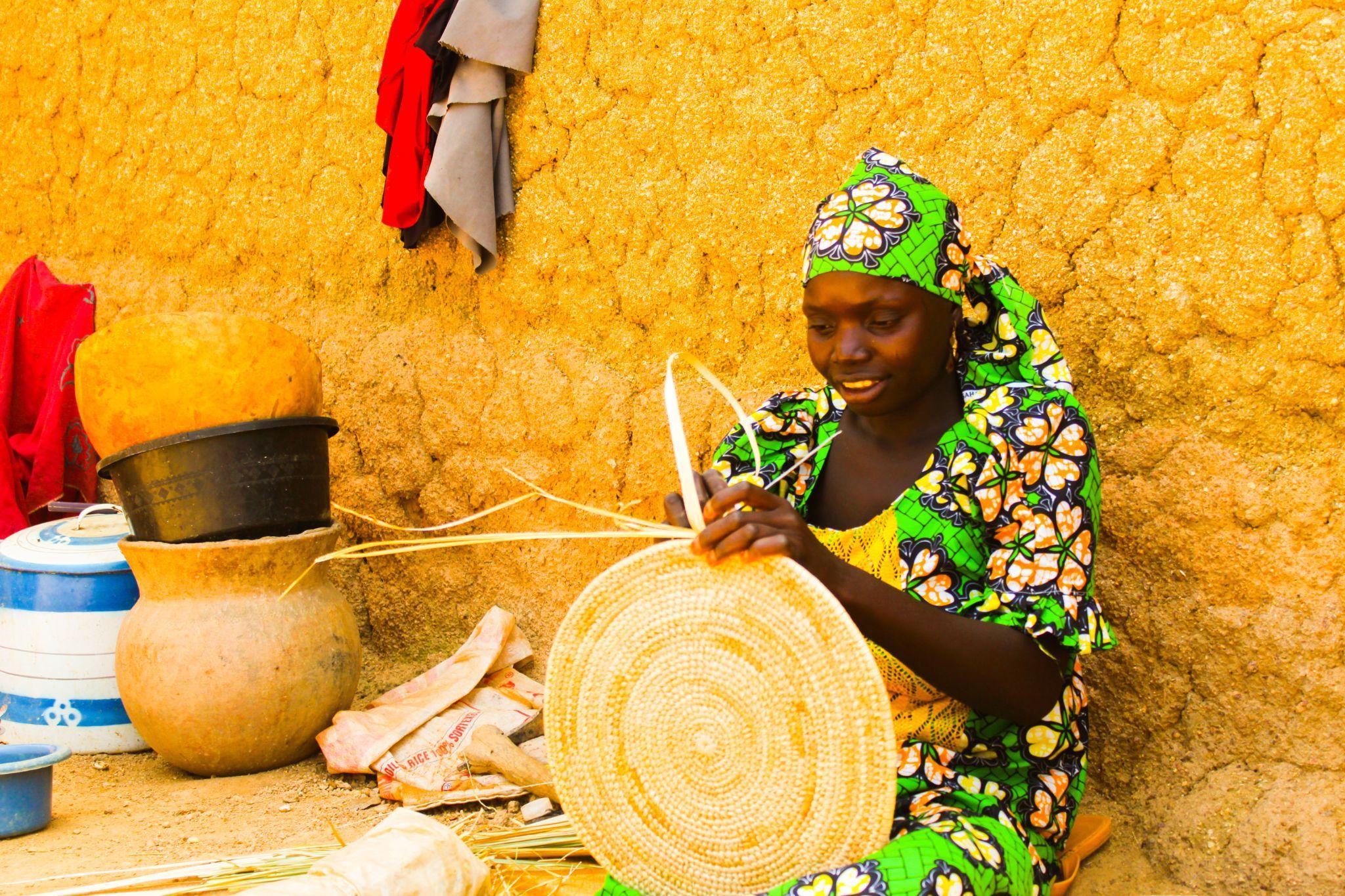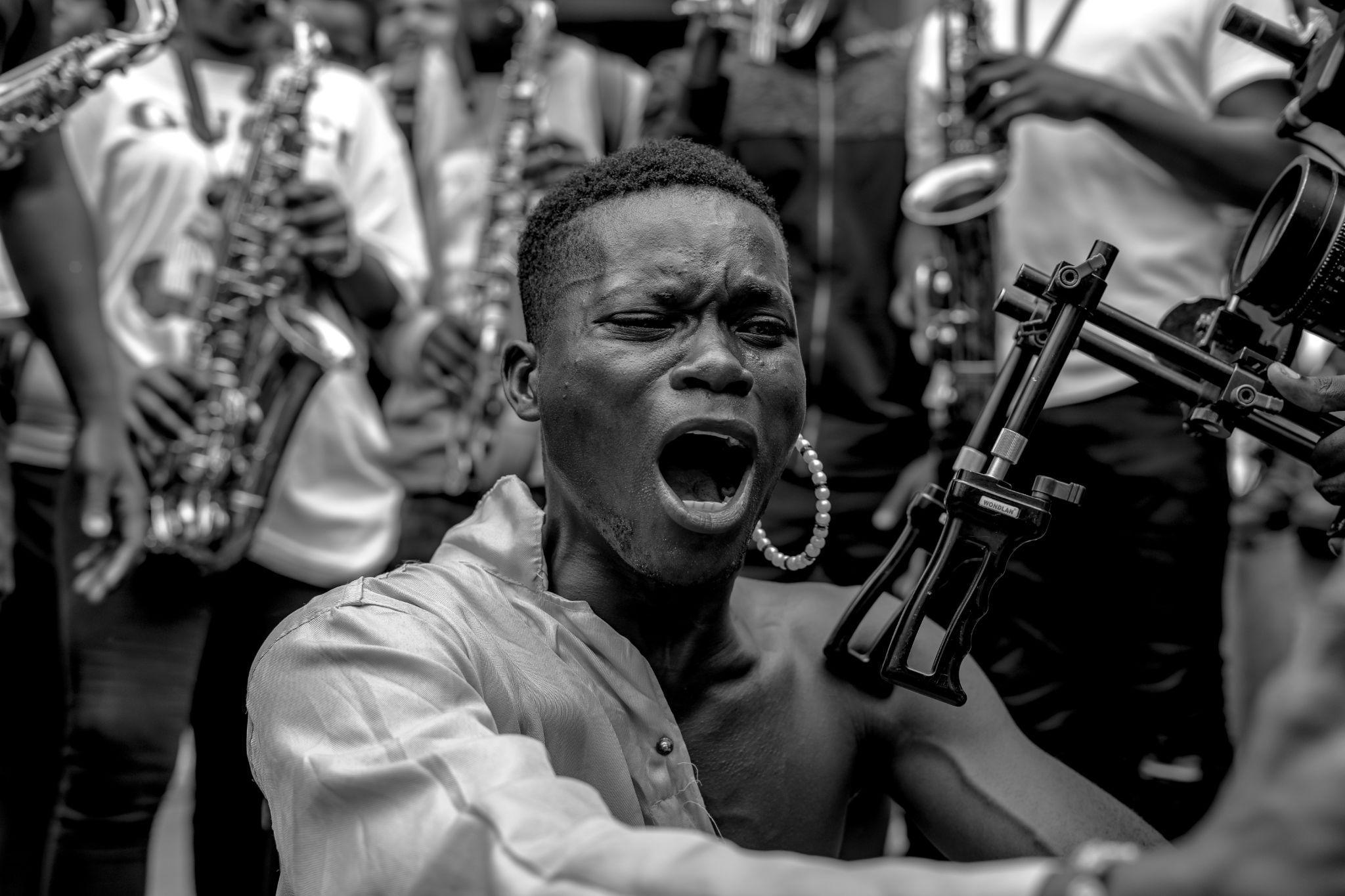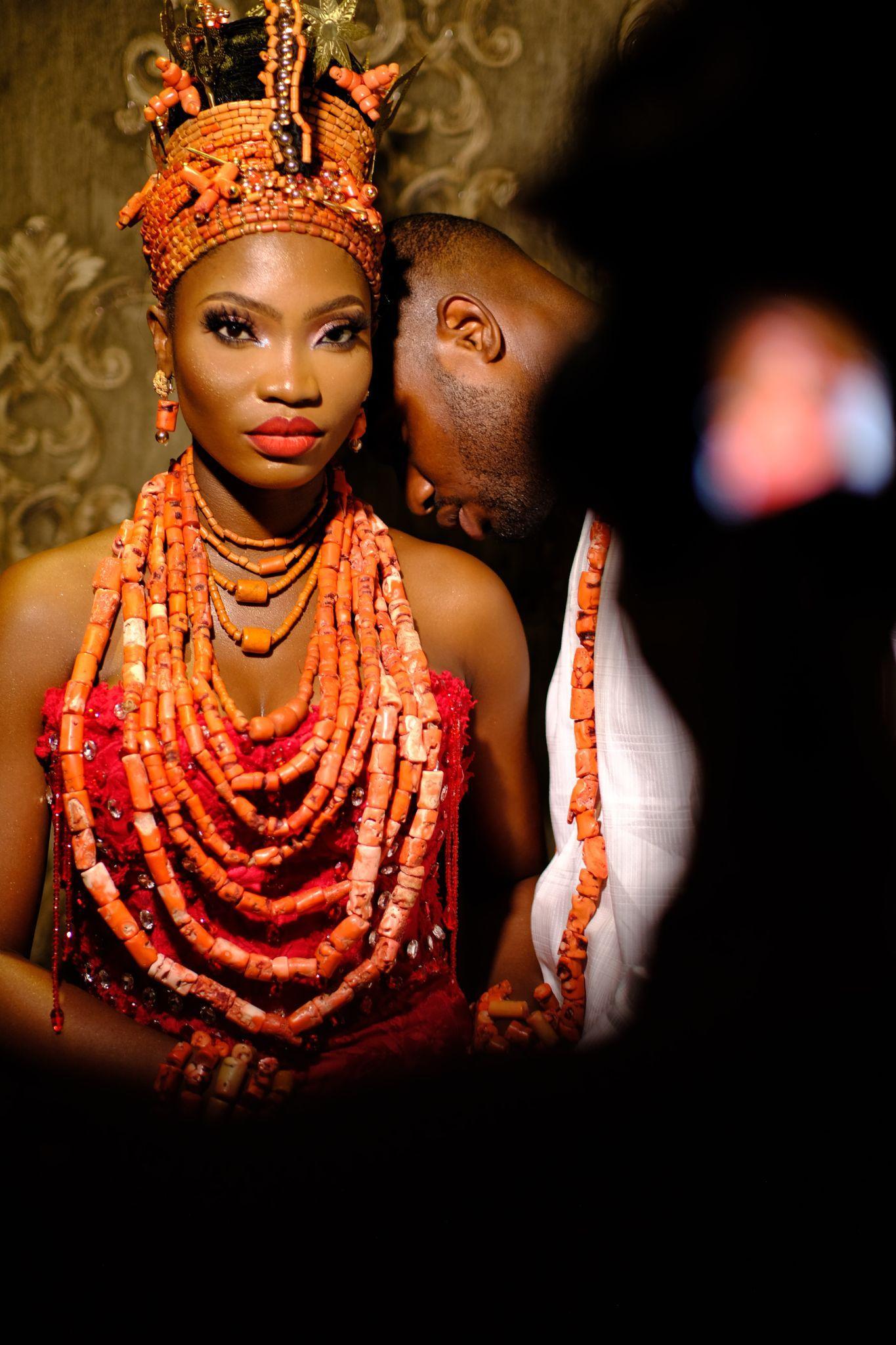Culture: My Heritage or My Shackles

Culture |
Contrary to how the title above might sound, I love my culture.
In this context, I’m referring to societal culture, the norms, beliefs and customs we were raised by and live by. Not from the influence of our parents or schooling or even religion but rather by our tribal tradition. In Nigerian society, culture is rich, it’s proud, it’s colourful and so very diverse with hundreds of tribes spanning twenty-five hundred years, existing even before colonization. And I am proud to be a part of that, but maybe not all of it.
Let me explain.

Culture and The History of Civilization
Although never truly admitted by colonizers, there was a form of civilization in Africa before Western expeditions; A civilization that was deeply rooted in our culture. We had our own form hierarchy, art, science and commerce. These are the parts of history that were scraped out intentionally to make us seem to have started as nothing but animals and savages. That’s why history in itself is unreliable.
The stories passed through folktales and song, even tales told through our marriage, art, dress and language, in there exists the truth. Our truth. Nigeria in its multi-ethnicity is one of the greatest examples of this.
The Fattening Room
Let’s look at the “Mbodi” (bride fattening). It is a marriage practice by Efik and Ibibio people where future brides are sent to a “fattening room” for months of pampering, continuous feeding, to engage in meaningful conversation and most importantly get lots of sleep. In these cultural communities, a fat bride-to-be is considered beautiful and more pleasing to her future husband.
During this time, the women are not only prepared for marriage but taught folktales and stories important to their culture, imbibing in them what they will one day imbibe in their own children. This culture is slowly fading away as is the appreciation for a “healthy” looking woman. However, a few people still practice it in their own way.
The Great Yoruba Deities
The traditional religion of the Yoruba’s is popularly known for the hundreds of gods worshipped by the people. We are familiar with a few like Sango (god of thunder and lightning), Ifa ( also known as Orunmila, god of divination), Eshu (the messenger and trickster god), Ogun (god of iron and war), Oshun (goddess of water, purity, fertility, love, and sensuality).
This religion represents the creation of the land, its pioneers and politics that all form the structure of Yoruba society. Now, most Yoruba people practice Christianity and Islam but this religion still inspires a literal cult following in the country and out of it. And its stories are still commonly known for being interesting tales of love, war and kinship.
Nok The Enigma
Nok culture is still much of a mystery but their art is popular around the world. Their beautiful and intriguing sculptures depict its people with bold, unique and stylistic traits, in different forms. Some with huge, exaggerated heads and small bodies that seem to signify intelligence, and others “diseased” visages that could represent poverty and sickness, but their true meaning remains unknown. One thing that is known is that Nok art speaks of a tradition of great sophistication.
The Celebration of New Yam
The new yam festival, known by many names, is a glamorous celebration that marks the beginning of a new harvest season. Celebrated by the Igbos, the origin of this festival is mostly unknown and it has no specific day when it is celebrated. People mark the harvest with music, dance, masquerades and family and only after they celebrate will the yam be eaten. At the end of the day, the yam is roasted and brought to the public and placed before the traditional ruler or the eldest in the community, along with a bowl of oil bean salad.
He must eat first before anyone else. It is generously garnished with palm oil, pepper and other delicious condiments that ultimately make the meal of the new yam a very pleasant end to the day of celebration. The significance of the new yam festival is not just about the harvest but that it ushers in a new order in the community and sustains the beautiful bond between the people and their ancestors.
The Musical Culture of the Hausa
We all know of the strong connection the Hausa’s have to their music, and if you’re like me, you lack understanding of why they insist on listening to all that Indian sounding music. Traditional Hausa music has more meaning to them than we understand. It is produced with specific instruments. As in other cultures, it consists of praise songs, most especially for the Sarki (king) and his entourage, all these form part of royal celebrations.
Musicians accompany them to play their praises, cite their biographies and emphasize their good deeds and character traits. After Islam was introduced into Hausa Land, these songs became centered around the religion instead. But their importance remains as the music is now used for teaching, celebration and praise.
Royal Beads
Beads hold a large significance in a lot of African cultures. In Yoruba society, beads were more than just for fashion. Waist beads, for instance called Ileke, Jigida, and Lagidigba, are very prominent and had different meanings. They were used to attract men, as seeing a woman’s waist beads was akin to seeing her naked.
On other occasions, they were also laced with charms to encourage fertility or as a form of contraception, some used them for spiritual protection. Also, it is more commonly known as a form of weight control because when they got tight it meant that she was gaining weight. These beliefs are not as common as they used to be but waist beads are still worn for these reasons.
Beads were also used to show a level of social hierarchy. Not just waist beads but beads around their heads, necks, wrists, arms, toes and ankles. People of higher social standing wore beads that were expensive, rare, and made of materials that were higher in quality, to separate them from others. And all these beads were often passed down from generation to generation.
The beads represent an ancestral connection. Threaded together on a string, they reveal the unity, solidarity and continuity of the people over time. You see, history tells us about these things but only culture can truly preserve them. That’s our connection to our ancestry, proof against all claims of savagery. It is the lifeblood of our society.

The Problem with Culture is Culture
Culture is our freedom, it is also our cage.
I once read a definition of culture that irked me. It listed the elements of culture to be belief, language, laws, customs and women. Women! Listed as an element, like nothing more than a commodity. But it pains me, even more, to admit that the article wasn’t wrong. 527 languages and 1150 dialects in Nigeria yet all these cultures speak in unison about one thing, that a woman is a mere commodity.
This is what culture sees when it looks at women. Left to the culture, I would be barefoot and pregnant by 16, I wouldn’t know how to write my own name and my biggest achievement would be marriage. It is a culture that makes a Yoruba wife so subservient she has to sit in the kitchen cooking through family events while her husband and her in-laws enjoy the party without her.
Culture that deems an Igbo woman unfit for an inheritance, whether it be from her father or her husband. Hausa culture, which deems pre-pubescent girls suitable for marriage. Women’s social status and rights have always been diminished by culture but that’s a topic to properly address another day. Studies also show that culture has a strong connection to infant mortality. Certain beliefs and practices prevent appropriate care for sick children.
As such, the presence of an illness may be seen as a warning sign of a problem in the spiritual realm and will ultimately go untreated. While women and children have gotten the raw end of the stick a lot of times, what of the men? Do not think they are free from culture’s biases. Culture that forces masculinity and fuels the desperate need for wealth; wealth that has long since tainted our society.
It deems an Igbo man unfit to marry because he cannot provide a cow, 2 goats and 10 chickens as payment to his in-laws for his bride to be. It’s social construction of manhood forces the complete dependence of females and family on men. Makes a man feel that his importance is determined by the number of wives he can marry and how many children he can have.
Dictates that a male child must dry his tears and bottle up his emotions at his father’s funeral because and I quote in a disappointed-uncle-voice, “If you cry, what do you expect your mother to do?” Like his strength lies in his ability to appear emotionless.
You can say “It is what it is,” and rationalize these rules as only natural. Cultural stereotypes are a part of life. The thing is, if you look under your metaphorical cultural covers, underneath the brightly coloured Ankara, are cuffs binding your wrists to your ankles secretly holding you hostage.

The Fragile State of Our Culture
When colonization came with its version of ‘civilization’, it watered down a lot of cultural practices and specificities. But it could never truly erase our culture in itself and a lot of indigenous beliefs still remain.
Even after all it has stood against, many believe that African culture is under threat as a lot of practices and traditions fade away each decade. Most of the blame for that is on technology, its widespread western cultures and its ultimate effects on the “naïve youth”. Let us for a moment ignore the most prominent factors like the effect of climate change destroying historical monuments and our own personal negligence, and agree that it is the young people that are the problem. Then riddle me this, if the youth are the future, does culture even stand a chance in it?
Change is inevitable, we change every day, we grow. And that’s okay. I understand the importance of preserving our culture but there are just some aspects that cannot survive in the time that we live in. I don’t think many people find it exciting anymore to see a masquerade on the road, holding a cane and chasing people around on the street especially when they are trying to get to work. And it’s not okay to have towns shut down and people’s lives threatened because of traditional festivals.
It’s important to understand that the evolution of culture did not just begin in our time, there are many practices that our ancestors chose to let go of because it no longer suited their society. Things like burying live slaves with their dead masters, female circumcision, the killing of twins, tribal marks (not fully gone but very infrequent), the list goes on and on. These are traditions that have been left behind for a reason. The only difference between then and now is their willingness to accept the change, adapt to it.
Change does not diminish culture, people do. It is people who created these cultures in themselves. So why do we tie ourselves down to something that doesn’t live, breathe and talk? Something that we have a lot more control over than we realize. The secret to preserving culture is in us.
Do you want to know what the secret is? Come closer, let me whisper it in your ear… it’s the new…
Didn’t hear me? Okay, I’ll just say it out loud… it is the new. We need the new to keep the old. To preserve culture we need to find new and innovative ways to keep parts of our traditions that we care for and let go of the others. It’s time to reconfigure and look to the future.
For instance, if you think traditional medicine is important, go to the hospital, find out your ailment, get some drugs and back it up with some immune system strengthening herbs.
An example of culture adapting to change is Nigerian weddings; we come from a history of traditional weddings alone. But western weddings have spread all around the world and the result in Nigeria has been… 2 weddings. The traditional and the white. The white usually happens in a church or mosque because of the priority religion takes in our lives in the new world, or it might happen at a court where the couple officially ties the knot. The traditional part is usually done as the engagement party or sometimes as the reception. This merge represents the new world and its agreement with the old. This also happens in other countries with other cultures.
I can already hear the cultural bigots jumping from their sits to yell “This world will spoil without our cultural fundamentals.” Well, Mr. or Mrs. “I’m a traditional person”, newsflash, the world is going to spoil regardless of your personal beliefs. Besides you don’t need culture to have morals or discipline, you don’t even need it to know your history, those are individual choices.
Stop saying “Back in the day, men used to do this…” or “Back in the day, women were like this…” Listen, back in the day, people fetched water from streams and cut down trees for wood for a fire that will keep them warm through the night. These are different times. So I implore you to think for yourself, not along the context of your culture alone. It should be a consideration, but it’s important that you, as a person, can see the difference between right and wrong, not society telling you what is right and what is wrong.
So society tells you your wife should serve you your food on her knees but logic tells you her knees might hurt and that this act is a little unnecessary. What do you choose? Society tells you you must marry a rich man but your heart says he is a decent person and even though his pockets aren’t full, he offers you a secure and happy future. Which is more important?
Society tells you your last name is more powerful than hers will ever be, especially as the head of the family, she must take it alone and so must your kids. Your rationality tells you there is room for compromise since it means something to her to keep hers or hyphenate both names. What is your position?
Society tells you he is your provider so you mustn’t lift a finger to help out with the financial weight on the family. But your compassion tells you he needs assistance that you can afford to give, what matters more to you?
You can love your culture and still see beyond it. Sometimes it’s not even the love of culture that feeds into these biases but rather the fact that certain cultural practices are more convenient for certain people. It’s easy to look forward to marriage with the idea that someone else is going to spend their lives taking care of you but would you feel that same way if it were the other way around?
My point is not to judge people who live by tradition, that’s a choice. Tradition is my heritage and it is important to me so I respect it but I choose not to allow it shackle me.
All images are sponsored by unsplash.com

